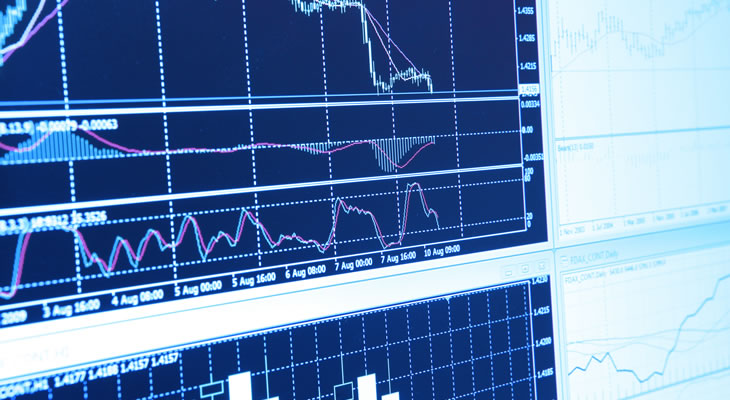The Euro to US Dollar exchange rate edged away from its monthly lows on Tuesday, as a lack of fresh US data or Federal Reserve hawkishness left the ‘Greenback’ Dollar limp. EUR/USD tested the level of 1.06 on Tuesday after trending near 1.05 since the weekend.
The Euro slumped slightly last week, following comments from high ranking European Central Bank (ECB) officials.
Among them was ECB President Mario Draghi, who stated the bank would likely not consider tightening Eurozone monetary policy before its quantitative easing (QE) program has concluded.
This week, Euro movement has been mixed but it has seen decent support from domestic data.
Tuesday’s European session saw the publication of ZEW’s April economic sentiment surveys for the Eurozone and Germany.
The Eurozone’s economic sentiment index unexpectedly improved from 25.6 to 26.3, beating an expected slip to 25. Germany’s was also impressive, surging from 12.8 to 19.5 and beating the projected 14. Germany’s current conditions print improved from 77.3 to 80.1.
As a result of the strong survey results from ZEW, the Eurozone’s disappointing February industrial production results were largely overlooked.
However, despite a seemingly solid economic outlook, Euro trade has remained jittery on political concerns this month.
The 2017 French Presidential election will take place between April and May. The first round of the election has seemingly become a four-horse-race this week, as far-left candidate Jean-Luc Melenchon surges in popularity and overtakes conservative Francois Fillon.
As Melenchon has indicated he will offer the French populace a referendum on EU membership, his rising popularity has made Euro traders anxious. Now, two of the top three candidates for the first round of the election are Eurosceptic.
While pro-EU centrist candidate Emmanuel Macron remains the betters’ favourite to win the election’s key second round in May, a surprise win for anti-EU Marine Le Pen or Eurosceptic Melenchon is something investors are still highly concerned about.
This is likely to continue to weigh on Euro trade for the coming month, even if Eurozone ecostats continue to indicate that the Eurozone economy has strong underlying fundamentals.
Demand for the US Dollar has been little changed this week. Investors had mixed reactions to the latest speech from Federal Reserve Chairwoman Janet Yellen, who took an unsurprising, cautiously optimistic tone towards the US economic outlook in a Monday speech.
As with the Eurozone, political jitters are in focus for USD traders in recent weeks too, particularly as tensions flare up between the US and Syria after the US ordered a missile strike against a Syrian airbase last week.
If uncertainties surrounding US diplomacy and politics continue to worsen, the Euro could see long-term gains against the US Dollar.
However, this largely depends on whether or not France elects a leader that will see France stay in the Eurozone as a ‘Frexit’ could cause significant damage to the shared currency.
At the time of writing this article, the Euro to US Dollar exchange rate trended in the region of 1.06. The US Dollar to Euro exchange rate traded at around 0.94.


Comments are closed.